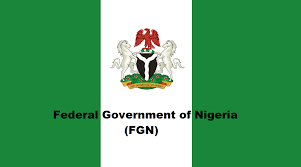Some whistleblowers under the Citizens Whistleblowers Coalition (CWC) have called on the Federal Government to investigate the operations of Mediterranean Shipping Company (MSC) in Nigeria.
The coalition urged the Attorney-General of the Federation to probe MSC on two critical issues: undermining Nigeria’s judicial system and sabotaging the economy.
Speaking in Port Harcourt over the weekend, CWC representatives—Programme Investigator Nafiu Ibrahim, Project Officer for Government Liaison Ella Susan, and Programme Officer for Socio-Economic Rights Owhonda Nwakanma—alleged that MSC had devised ways to prevent Nigerian companies from litigating admiralty matters against it within the country.
They recalled that in February, following a legal suit by Interglobal Technologies over N49 million in demurrage fees at the Federal High Court, MSC secured an ex parte anti-suit injunction from a London High Court to bar the Nigerian company from litigating the admiralty matter in Nigeria.
However, the whistleblowers stressed that Nigerian law clearly vests admiralty jurisdiction in the Federal High Court where the place of delivery or any party resides in Nigeria, citing Section 20 of the Nigeria Admiralty Jurisdiction Act (AJA).
“MSC is effectively claiming in London that it cannot be sued in Nigerian courts for infractions arising from shipping services rendered in Nigeria,” they said.
They explained that MSC’s contracts contain an exclusive jurisdiction clause giving the London High Court sole authority over disputes, forcing Nigerians and Nigerian companies to litigate only in London, regardless of where the shipping services were provided.
“This clause undermines Nigeria’s sovereignty and judicial system,” they warned. “It oppresses Nigerians who should have access to justice locally, especially in admiralty matters.”
The whistleblowers called on the Attorney-General, security agencies, judiciary, the Federal Inland Revenue Service (FIRS), and the National Assembly to investigate MSC’s declared revenues and tax compliance, noting the company reportedly generates over $2 billion annually from Nigeria.
“MSC’s shipping practices—such as excessive demurrage charges, container deposits, and cargo delays—are oppressive. Forcing Nigerians to litigate in London adds further hardship,” they said.
They urged authorities to hold MSC accountable for flouting Nigerian laws and warned that failure to do so should lead to the company being barred from operating in Nigeria.
“Regardless of its size, MSC must respect the laws of Nigeria, where it earns substantial revenue. Its disdain for Nigerian courts and legal system is unacceptable and demands thorough investigation,” the coalition concluded.















